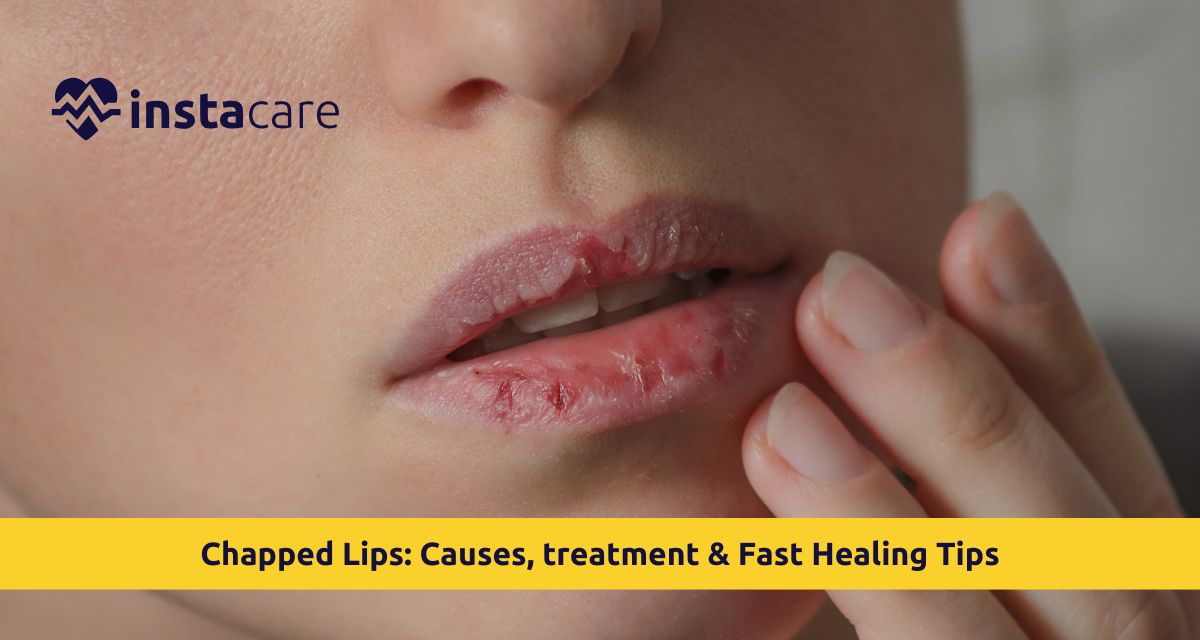Certain Causes of Chapped Lips
- Environmental Reasons: Exposure to cold dry wind, sun, or cold air draws out moisture from skin and hence dry chapped lips can be produced owing to winter or harsh weather.
- Dehydration: Low intake of water dries out the body, and dry chapped lips and dehydration are ill-fated companions.
- Over-Lip Licking: Saliva is temporary and will certainly evaporate, leaving lips drier than they were in the first place.
- Allergic Reaction: Some cosmetics, toothpaste, or skin cream irritates and flakes and reddens the lips.
- Vitamin Deficiency: Nutritional deficiency in the guise of sub-normal B vitamins, iron, and zinc can cause chapping of the lips and deficiency symptoms.
- Medical Conditions: Dry lips can be a symptom of eczema, fungal infection, or thyroid disease.
- Medications: Certain medications such as retinoids, chemotherapy for cancer, and certain acne medications have very dry lips as an adverse drug reaction.
- Causes Through Diet: Flicker, sour food or salt are lip irritants, and if there are no healthy fats, the lips dry up.
Signs and Symptoms of Chapped Lips
- Dryness and bruskness of the lips.
- Chapped lips and peeling or flaking of the skin, usually found by hand.
- Redness, burning, or tenderness, usually following sun exposure.
- Chapping with pain, with probable small lesions at lip corners.
- Burning or swelling in more serious cases.
- Extreme pain impossible to smile, eat, or talk.
- Excessive crying and drooling of the lips and excessive licking of the lips in Chapped lips in children aggravate the condition.
Breathtaking Home Remedies for Dry Lips
- Lip Balms: Application of the best lip balm for chapped lips, i.e., application of petroleum jelly-based balms, beeswax-based balms, or shea butter-based balms, results in barrier protection that encloses and retains the moisture.
- Moisturizing Balms: Petroleum jelly or thick creams work better than thin balms as they retain moisture longer.
- Exfoliation: Sugar and honey or soft-bristled toothbrush to remove dead skin gently, and the balm penetrates deeper.
- Hydration: Have one extra glass of water daily in order to restore naturally chapped lips and dryness.
- Natural Oils: Coconut oil, olive oil, or almond oil are the na Natural remedies for chapped lips since they have no chemicals and are comforting and soothing.
- Over-the-Counter Ointments: If lips are very chapped and dry, one applies hydrocortisone or lanolin ointment.
- Medical Treatment: Physicians of chapped lips or infected chapped lips give antibiotics or antifungal cream or recommend getting tests to be conducted to attempt to determine vitamin deficiencies.
Read More: Dark Lips Cause and Natural Remedies
Quick Recovery Tips for Chapped Lips
- Night Treatment: Apply a thick layer of petroleum jelly or natural oil as a night treatment for dry, chapped lips.
- Aloe Vera Gel: Because of its healing and soothing nature, aloe vera gel calms inflammation and heals cracks.
- Cucumber Slices: Cucumber slices applied on the lips provide immediate relief from dryness and relaxation.
- Honey: Honey heals chapped lips at a very rapid rate because it is antibacterial and moisturizing.
- Humidifiers: Keeping a humidifier in the house over winter means that air is kept moist and thus prevents winter chapped lips.
- Don't Pick or Lick: While the limit is vast, picking and licking accelerate healing time and charrs skin.
Prevention of Chapped Lips
- Stay Hydrated: Drink 8 glasses of water daily.
- Use Sun Protection: Apply lip balms with SPF to avoid sunburn and cold or chapped sores.
- Choose Lip-Friendly Products: Avoid flavor lip balms, menthol preparations, or harsh cosmetics that may dry out the lips.
- Munch Healthy: Employ foods with high rates of vitamin, mineral, and omega-3 fatty acid intake to avoid Chapped lips and vitamin deficiency.
- Moisturize Regularly: Apply a healing balm regularly, preferably at night.
- Limit Irritants: Avoid eating sour, spicy, and salty foods that lead to peeling.
- Winter Care: Carry a balm in winter so as not to end up with chapped lips in winter.
Conclusion

